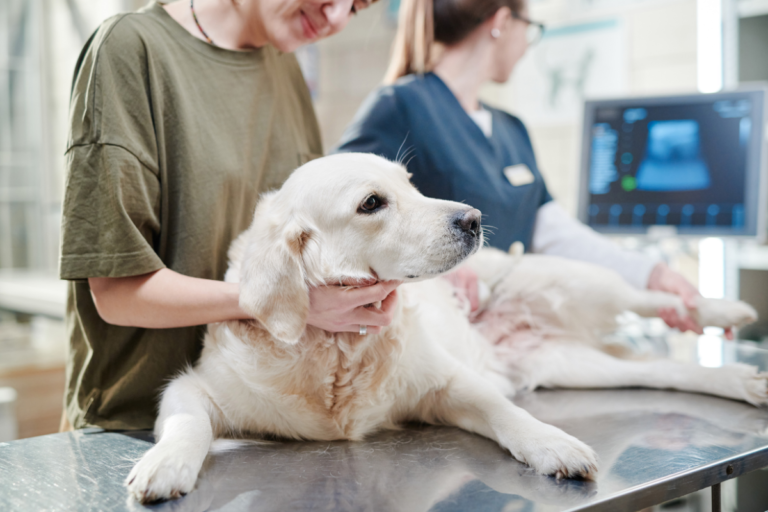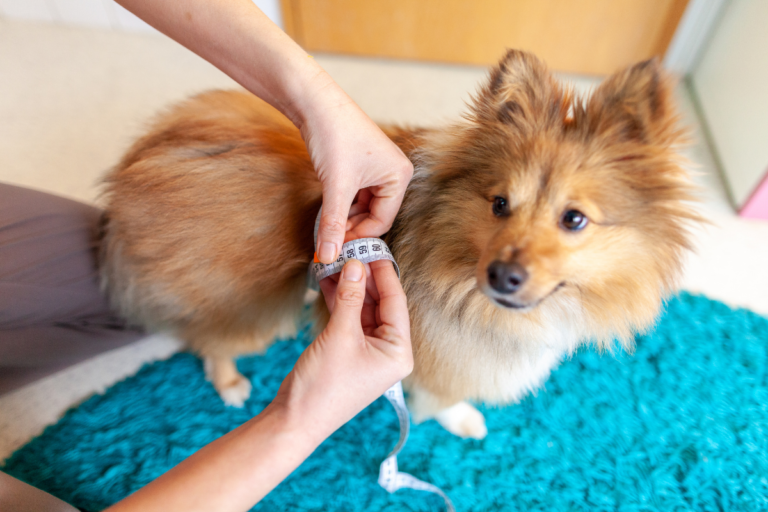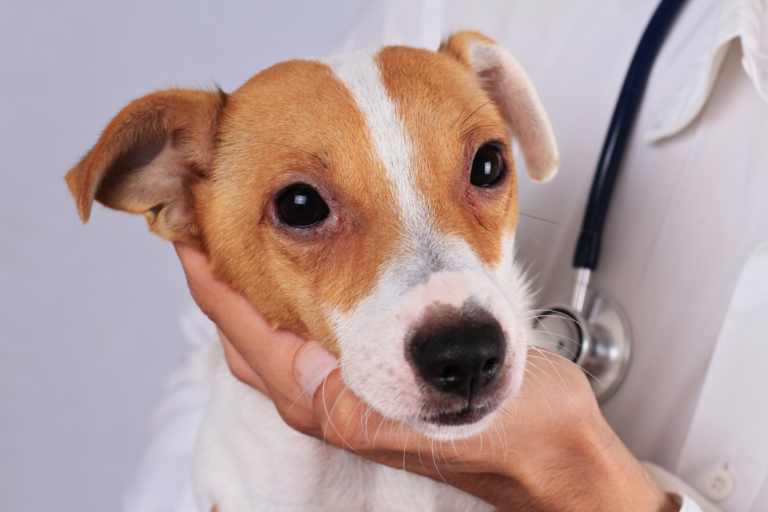Shielding Our Shih Tzu: Be Aware of Common Health Problems
Understanding Shih Tzu Health
Shih Tzus are like little bundles of joy with wagging tails and those sweet faces! When it comes to looking after these charming pups, it’s all about knowing what could go wrong and keeping an eye on their health stats to make sure they stay happy and wagging for years.
Common Health Issues
Shih Tzus are usually fit-as-fiddles, but thanks to their unique looks, some health quirks do pop up now and then (CitizenShipper link). Here’s what you should watch out for:
- Eye Problems: There’s something about those big eyes that make people melt, but they can also bring trouble. Issues like cataracts or dry eye are common thanks to their eye structure. Regular visits to the vet can help snag these problems early.
- Ear Aches: Their cute floppy ears often spell ear infections. Keeping their ears clean and watching for any funky smells or redness will help keep them pain-free.
- Back Troubles: With their long backs, Shih Tzus can have spine problems. Helping them avoid too many high jumps will keep their spines aligned and healthy.
- Tummy Woes: Some Shih Tzus act like picky eaters with allergies. Symptoms like vomiting or itchy skin might mean an allergic reaction, so keeping track of what’s in their bowl is key.
- Kidney Concerns: Some suffer from kidney issues, expressed through increased thirst or frequent trips to the bathroom. Vets usually check with blood tests or scans for a diagnosis (Long Beach Animal Hospital link).
Lifespan and Vital Statistics
Knowing how long and how big our furry pals grow can be pretty helpful.
Here’s a quick cheat sheet for Shih Tzus:
| What’s What | How Much |
|---|---|
| Lifespan | 10-16 years |
| Height | 9-10.5 inches |
| Weight | 9-16 pounds |
Shih Tzus generally enjoy a good life span. However, their flat faces mean they struggle with heat. Keeping them cool with plenty of shade or cooling mats at home helps them stay comfy! (CitizenShipper link)
For more on keeping your Shih Tzu fit as a fiddle, check out our articles on doggie diseases and why those vet visits matter. With the right care, we’ll have these precious pals with us for a long, happy time!
Physical Health Concerns
Keeping our Shih Tzu healthy means knowing the typical issues they might face, such as breathing problems, weight gain, and joint issues. Recognizing these hurdles helps us provide the best care for our little fluff balls.
Breathing Woes
Our Shih Tzus, with their adorable squashed faces, can deal with BOAS, a condition that messes with their breathing. You might notice them breathing like Darth Vader, or struggling more on steamy days. If you see these signs, it’s time to ring up the vet. To keep our pups comfy:
- Ensure they stay cool and avoid getting too toasty.
- Keep a lid on intense playtime.
- Aim for a healthy weight to ease their chests.
Packing on the Pounds
Many Shih Tzus love lounging around, which can lead to packing on the pounds. Extra weight puts them at risk for serious issues like wonky blood sugar, creaky joints, and heart struggles. Here’s how we can help:
- Go easy on the treats and cut back on junk food.
- Keep them moving with routine exercise.
- Chat with the vet about a meal plan that fits.
| Risk | Related Issues |
|---|---|
| High Blood Sugar | Feeling tired, drinking like a fish |
| Creaky Joints | Hurting, walking like a rusty robot |
| Heart Problems | Wheezing, running out of steam |
For more ways to help a pudgy pooch, head over to our chubby dog tips.
Troublemaker Kneecaps
A Shih Tzu’s knee might pop out like a ninja, causing aches and an awkward limp. Patellar luxation often bugs smaller dogs, so keep an eye out for:
- Random limping or hopping like a bunny.
- Trouble getting up after nap time.
- Avoiding stairs or pretending jumping’s not their thing.
The fix-it plan changes with how bad it is. Sometimes, a new diet and some exercise does the trick, but other times surgery might be in the cards.
Check out more on creaky knees at pup ailments and doggie troubles.
By tuning into these health challenges, we’re one step closer to making sure our Shih Tzu struts around with its tail held high. Regular vet visits and preventative care help catch problems before they get too big. For extra pointers on keeping hearts ticking, visit pooch cardiology tips.
Genetic Health Conditions
Owning a Shih Tzu means giving them loads of love but it also means keeping an eye on their wellbeing. Some health hiccups are in their genes, and while we can’t change their DNA, we can certainly manage these issues.
Liver Can’t Keep Up
Our little furballs can get stuck with a condition called liver shunts. Basically, it lets bad stuff skip the liver party and hang out in their bloodstream instead. Unfortunately, this can lead to all sorts of tummy troubles, growth issues, and brain baffles like seizures. Spotting it takes a few tests—blood work, belly scans, and sometimes even surgery.
| What’s Happening | What It Looks Like |
|---|---|
| Tummy Traps | Vomit and runs, yuck! |
| Slow Grow | Puppy’s not sprouting as fast |
| Brain Freeze | Seizures or acting confused |
Find out more on our canine kidney disease symptoms page.
Pebbles in the Pipes
Bladder stones love to crash the Shih Tzu party, too. These pesky pebbles can come in different types—calcium oxalate, urate, you name it—and cause bathroom dramas (Long Beach Animal Hospital). Pinning them down requires X-rays, ultrasounds, or a pee test.
| Stone Type | How We Find ‘Em |
|---|---|
| Calcium Oxalate | X-rays, ultrasounds |
| Urate | X-rays, ultrasounds |
| Struvite Calcium Phosphate | X-rays, ultrasounds |
| Silica Crystals | X-rays, ultrasounds |
Regular vet check-ups can catch these intruders early. Find more info on our female dog bladder infection symptoms page.
Kidney Kidnappers
Sometimes the kidneys just don’t get built right—hello, renal dysplasia! If left unchecked, it can lead to kidney trouble down the line. Regular vet visits are our best defense.
Got kidney worries? Pop over to our canine kidney disease symptoms section.
Being clued-up on these sneaky health conditions means we can have our Shih Tzus tail-wagging for a long time. Trusty vet visits, solid meals, and catching symptoms early is the name of the game. For more health tips, check our dog diseases and symptoms page.
Respiratory Health
Brachycephalic Airway Syndrome
We all love those snuggle-worthy, flat faces our Shih Tzus flaunt, but they sometimes come with a price. Our little furry pals might face breathing troubles due to a condition called brachycephalic airway syndrome. With symptoms like noisy snoring, marathon-worthy wheezing, and sneezing, it’s vital we keep an ear—and a nose—out for anything unusual (Long Beach Animal Hospital). Being clued up can help us keep our pup pals in tip-top shape.
Watch out for these signs:
- That snore could mean more
- Persistent coughing
- Unexpected wheezing
- Nasally noisy breathing
Sometimes things get serious and surgery is needed, so spotting these symptoms early is key. If our Shih Tzus are sounding a little Darth Vader-ish, let’s ring up the vet.
Heat Sensitivity
That cute squishy face? It’s also a secret heat trap. Shih Tzus can easily overheat, given their adorable brachycephalic features (CitizenShipper). When the weather turns up the heat, it’s on us to keep them chill.
Cool-off tips for Shih Tzus:
- Set up chill zones like tile floors or get them cooling pads
- Skip the non-stop summer workout routines
- Watch out for signs like heavy panting or sluggishness
These little adjustments can help avoid a heat meltdown—keeping our furry companions comfy and avoiding any hot weather mishaps.
Exercise Needs
Yes, our squishy-faced buddies need their workout too, even if it’s a bit tailored. Shih Tzus require some daily moves to keep them spry, but nothing too crazy, given their breathing needs. Let’s find that sweet spot between comfy couch potato and backyard champion!
| Exercise Activity | How Much? |
|---|---|
| Chill Walks | Half an hour daily |
| Indoor Fun | About 15 minutes |
| Training Time | 10 minutes a go |
Combining play and little nap breaks helps avoid overdoing it. Exercise keeps them from packing on the pounds and boosts their mood sky-high. After all, a little run around ensures their tails are always wagging and their hearts are happy. Want more on keeping your snouty friend happy? Check out more tips for french bulldog health issues.
Nutrition and Diet Tips
Keeping our Shih Tzus healthy starts with feeding them right. We’re diving into their food needs, ways to handle low blood sugar, and how to dodge pesky food allergies.
Dietary Requirements
Picking the right chow is a big deal for our Shih Tzus. It helps dodge the whole ‘too skinny or too chubby’ dilemma and keeps them bouncing with energy. Here’s what makes up a good meal for our little buddies:
- Top-notch protein: Powers up muscles and keeps them raring to go.
- Healthy fats: Ensures a glossy coat and cuddly skin.
- Carbs: Fuel their antics but keep it in check so they don’t start packing pounds.
- Vitamins and minerals: These are the body’s little helpers for everything else.
Here’s a handy table for what Shih Tzus ideally need in their meals:
| Nutrient | Ideal Percentage of Daily Intake |
|---|---|
| Protein | 20-25% |
| Fat | 10-15% |
| Carbohydrates | 30-50% |
| Fiber | 2-4% |
Hypoglycemia Management
Our little Shih Tzus can sometimes have sudden sugar dips, which is scary stuff. Some reasons might be skipping meals or underlying things like diabetes (Pet Plate). They might seem wobbly, sleepy, get shaky, or, worst-case, have seizures. To keep them steady:
- Steady Meals: Feed them three solid meals a day, plus some healthy nibbles inbetween.
- Good Food: Make sure their grub’s got enough protein and complex carbs.
- Keep an Eye Out: Spot any weird behavior and hit up the vet if it doesn’t let up.
Want to know more about keeping diabetes at bay in dogs? We’ve got info on dog diabetes symptoms.
Preventing Food Allergies
Shih Tzus can have diva-like stomachs, making them prone to food allergies. They might throw up, act tired, shed that shiny coat, itch everywhere, or have gut issues like diarrhea and constipation (Pet Plate). To keep allergies at bay:
- Spot and Skip: Common culprits are beef, dairy, wheat, eggs, chicken, and more.
- Trial and Error: Introduce new foods slowly and see how they react.
- Quality First: Go for food that spells out what’s in it instead of vague terms like “meat meal.”
We’ve also got a tip for quenching their thirst—opt for bottled or filtered water. That good old tap water can carry nasties like Chromium-6, metals, and even meds that aren’t good for them and can lead to things like cancer (AllShihTzu).
For more on keeping our pups in tip-top shape, check out our guides on dental disease in dogs and dog heart disease.
Preventive Care Strategies
Vaccination Schedule
Keeping our little Shih Tzus safe and healthy starts with a shot schedule. These vaccinations are like tiny superhero capes, protecting them from nasty bugs and diseases. Our furry companions might be small, but they’re active and love their snuggles, making these shots super important for their health and lifespan. Here’s what their jab calendar looks like:
| Age (Weeks) | Vaccination |
|---|---|
| 6-8 | Distemper, Parvovirus |
| 10-12 | Distemper, Parvovirus, Adenovirus, Parainfluenza |
| 14-16 | Rabies, Leptospirosis |
| Annually | Booster shots for core vaccines |
Getting these shots on time is a must if we want to dodge serious health problems (Vetic).
Dental Health Importance
Shih Tzus’ dental health is crucial – nobody wants a slobber monster with bad breath! By keeping their teeth sparkling, we help them avoid painful dental issues like gum disease and cavities. Brushing those teeth regularly is key, and we should also schedule a professional mouth-cleaning during vet visits.
Why dental care? Well, it:
- Stops bad breath and tartar from taking over
- Keeps gum disease at bay
- Boosts overall health
Check out more on dog gum disease and how to prevent those pearly whites from turning yellow.
Regular Veterinary Check-Ups
Regular vet visits are like check-ups for our doggy pals to stay in tip-top shape. These visits are essential for routine shots, warding off parasites, and spotting any hidden health troubles early on. Visiting the vet at least once a year is the norm, but our older pups or those with other issues might need a bit more TLC.
At these appointments, the vet will also check out:
- Weight and body condition
- Dental health
- Heart health for problems like dog heart disease
Want to keep on top of your buddy’s health? Check out more at healthy hounds for some expert advice.
By sticking to these preventive steps, we’re making sure our Shih Tzus stay cheerful and healthy, dodging the usual shih tzu health problems that come their way.






